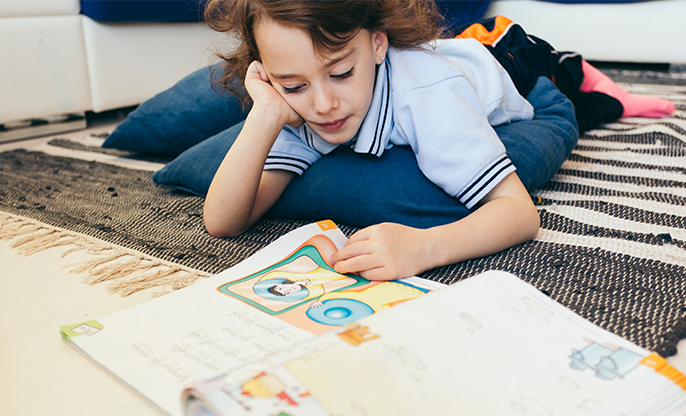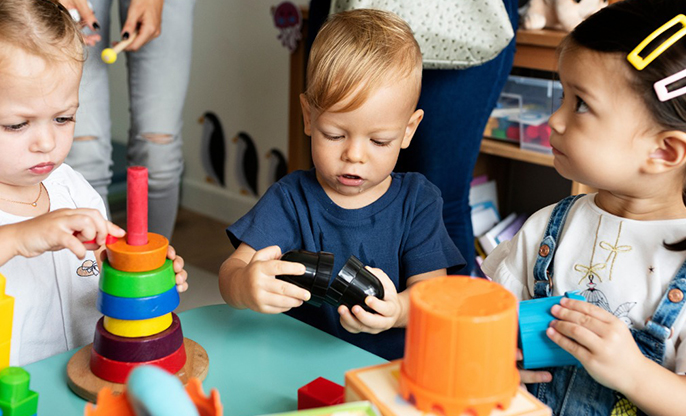
Answering Back a Bad Behaviour or Developmental Stage
Many parents deal with their children's sudden outbursts of answering back or bad behaviour in general. Are you someone who also worries about answering back and impertinence in your child? Then read on!
Not always a bad behaviour
It's normal for children to test boundaries, especially as they become verbal and curious about the world. Your child may start to answer back, disagree with you and express their opinion when they're around three or four years of age. But that doesn't always mean they're doing it disrespectfully.
Answering back can be a sign of normal development in a child. It shows their increasing cognitive development and gives them control over autonomous actions. They are trying out different communication styles and learning problem-solving skills by testing the limits of the rules parents or caregivers have given them.
Answering back can also be an expression of anger, frustration, or a need for attention, so it's important to monitor your children and see the underlying causes for this demeanor, such as stress or anxiety in their environment or feeling neglected by an absent parent.
If your child exhibits signs of healthy development such as curiosity, confidence, and imagination, their answering should not be considered bad behaviour but an opportunity for growth and exploration.
An Expression of Independence
This is especially true for teenagers, who are inherently prone to asserting themselves and testing the boundaries of the relationships around them. Answering back can be seen as their attempt at gaining more autonomy, making their own decisions and forming their own opinions without following an adult's orders.
So if your child starts to answer back more frequently, it isn't necessarily cause for alarm. Instead:
Talk to them calmly to help them understand the consequences of their behaviour
Do your best not to overreact or be overly harsh in response
Make sure they know that respecting adults and respecting boundaries are expected behaviours in your family
Maintaining Boundaries While Allowing Exploration
It can feel like a fine line to walk when your child starts talking back. On the one hand, you want to be firm about maintaining boundaries and authority while allowing for those important moments of exploration.
The key is to maintain the balance of understanding, empathy and control. It starts by listening closely to your child:
Make an effort to understand why your child is talking back or why they're disagreeing with you.
Acknowledging their feelings helps them feel validated, but also lets them know it's not okay to talk back when they don't get their way.
Explain why you're setting rules and limits in a way that respects their feelings and allows them to start looking at things from different angles.
Redirect their behaviour into something more productive, like role-playing certain situations or having them formulate a plan to adhere to the rules without resorting to talking back.
What to Do if Answering Back Escalates Into Disrespectful Behaviour
Knowing the difference between answering back and outright disrespect is important, as the two require different solutions. If your child's answering back escalates into disrespectful behaviour, it's time to take action.
Set a Strong Foundation of Respect
The most effective way to handle disrespectful behaviour is to ensure that your relationship with your child is built on respect from the start. Make sure you model mutual respect in your interactions with your child. This means listening to them when they talk, giving them choices when appropriate, and respecting their autonomy by not treating them like an extension of yourself.
Respond Immediately and Calmly
When children act disrespectfully, be sure to take appropriate action immediately. Letting the conduct slide gives children mixed messages and can make things worse. However, it would help if you stayed calm to effectively communicate expectations without escalating the situation.
Follow Through With Consequences
It's also important to follow through with consequences for inappropriate behaviour. Every time children misbehave without consequence or feel like their bad attitude isn't taken seriously enough, chances are they will continue to escalate their actions because they don't believe there are any real repercussions. So be sure you set consistent consequences for any inappropriate behaviours.





